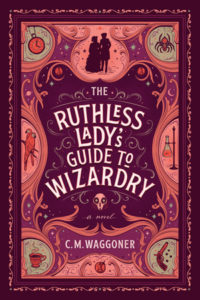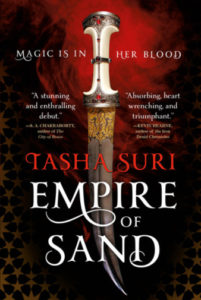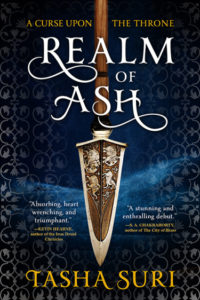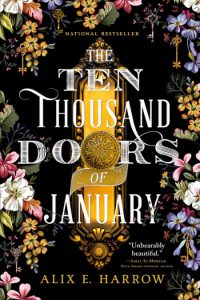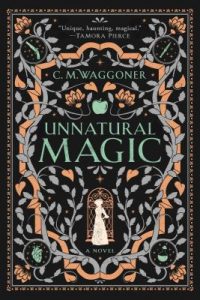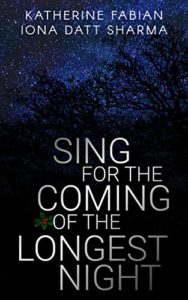
In 2005, I began reading The Tale of Genji, by Murasaki Shikibu, with a group of friends on LiveJournal. It was great fun, but we collectively stalled out around chapter 20 or so. I tried again in 2007: I distinctly remember taking the absolute brick of a trade paperback (I was reading the Seidensticker translation) on vacation and getting to the point, about 4/5 of the way through, where the narrative jumps after the title character’s death, but running out of vacation time. (Sorry to spoil a thousand-year-old work.)
I came back to it recently because an entirely different extremely long book wasn’t doing it for me, but I was still in the mood for an extensive immersion. In the fifteen years since I’d last attempted Genji, a new translation by Dennis Washburn had been released, so I gave that a try. And (as you will have guessed from the existence of this entry) I did, in fact, finally read Genji from start to finish.
Washburn’s translation is very fluid and readable. He allowed himself to add very short cultural context within the text, which means that his footnotes are almost entirely confined to poetry references–which, by and large, I could get the purpose behind from context, so did not feel the loss of them. This was especially significant for my reading purposes because going back and forth between footnotes in an ebook is not easy; there are some ebooks that are formatted so that certain readers (such as my preferred KOReader) can display footnotes at the bottom of the page, but this isn’t one of them.
(I don’t have an electronic copy of Seidensticker, but I do of Royall Tyler’s 2001 translation, and he footnotes far more, both because of his translation choices and because he just doesn’t seem to trust the reader as much. For instance, in the first chapter, Genji’s mother dies in one paragraph, and the next says,
He [the Emperor, Genji’s father] still longed to see his son, but the child was soon to withdraw, for no precedent authorized one in morning to wait upon the Emperor. [9] The boy did not understand what the matter was, and he gazed in wonder at the sobbing gentlewomen who had served his mother and at His Majesty’s streaming tears. Such partings [10] are sad at the best of times, and his very innocence made this one moving beyond words.
Footnote 9 advises us that "After the year 905, children not yet in their seventh year no longer went into mourning for a parent, and the present of this story therefore seems to be earlier." Okay, fine. But footnote 10 says, "The death of a parent." You interrupted my reading for that? Seriously?)
Washburn’s translation was also easier for me to read because that added cultural context included a level of straightforwardness that wasn’t present in Seidensticker. To be mildly crass about it, in Seidensticker I was often unsure if the characters had actually had sex, whereas Washburn will just say, they had an affair, or, "she skillfully put him off, parrying his advances until dawn." This is truly important information, because the book’s events overwhelmingly focus on men’s sexual pursuit of women and the consequences thereof.
So while there are the occasional mildly jarring phrases in Washburn, I really do recommend it over the other two most recent major English translations.
I do not, however, recommend Genji as a novel.
It’s true that Washburn’s prose and the characters generated a surprising amount of narrative momentum! However, the suspense for me was genuinely, "How awful is Genji (or the next-generation protagonist) going to be to this woman?" As I said, the book is overwhelmingly about men’s sexual pursuit of women, but more generally, about their feelings of entitlement to access to, and control of, women, usually sexually but also just overall. The book thoroughly recognizes the distress, helplessness, and conflict that these feelings of entitlement cause in women–as do the men, very often, but does it stop them? No. (Sometimes they pat themselves on the back for not actually physically forcing the women, but they still complain to the women about how upset they are and how hard it is not to.)
And indeed this is all about cultural context; back in the day, we read an article by Tyler arguing that high-status women in Genji literally were unable to consent: "no young woman of good family could decently, on her own initiative, say yes to first intercourse." I’m raising this not for the question of how I understand the morality of the characters within their own context (though frequently Genji does understand himself to be in the wrong), but for the simple point that I hate reading about them.
For instance, there’s a long section about Tamakazura, who is the long-lost daughter of Genji’s friend and peer. Genji knew from his friend that Tamakazura’s mother moved away because she was uncertain about their relationship and that the friend wanted to find them both. He discovered the mother … and had an affair with her without telling his friend. He later discovered Tamakazura … and brought her back to his house and claimed that she was his daughter, to buy time while he (1) attempted to seduce her and (2) decided whether to tell his friend the truth, possibly so he could marry her himself, or to marry her off as his own daughter. I sped through this section, but solely because I couldn’t bear not to know how bad it was going to be.
(This is of course not mentioning the infamous early bit where he has an affair with his stepmother; finds her ten-year-old niece who is her spitting image; literally kidnaps her and raises her; and eventually enormously shocks her when he consummates the marriage that only he knew was the end goal. I suppose it’s only my own fault for having continued after that, honestly.)
Also, there are only so many descriptions of the colors of people’s clothes, the elegance of their playing of musical instruments, the beauty of Genji’s face, etc., that I personally can stand reading. I do, however, find it extremely funny that one of the next-generation characters is permanently accompanied by a miraculous "fragrance unlike any scent of this world," especially since this character isn’t flashy in his personal style: "He thus found it troublesome that even when he withdrew behind something to stay out of sight, he couldn’t remain hidden for long before his fragrance gave him away."
Anyway, if you’re going to read this, I do recommend Washburn’s translation; and it does contain sensitive and nuanced characterization that’s very impressive. It’s just that the characterization is uniformly distressing and so, unless you’re attempting to finally accomplish something you started decades ago, I wouldn’t bother.
(As a palate-cleanser, I am about a third of the way through Sei Shōnagon’s The Pillow Book; I am also picking up another group project, this time of The Romance of the Three Kingdoms. It’s just started and looks a much easier lift; come join us!)
